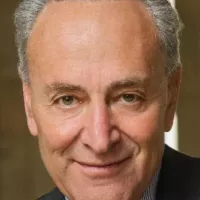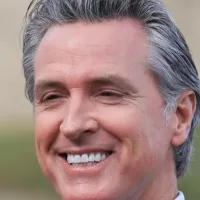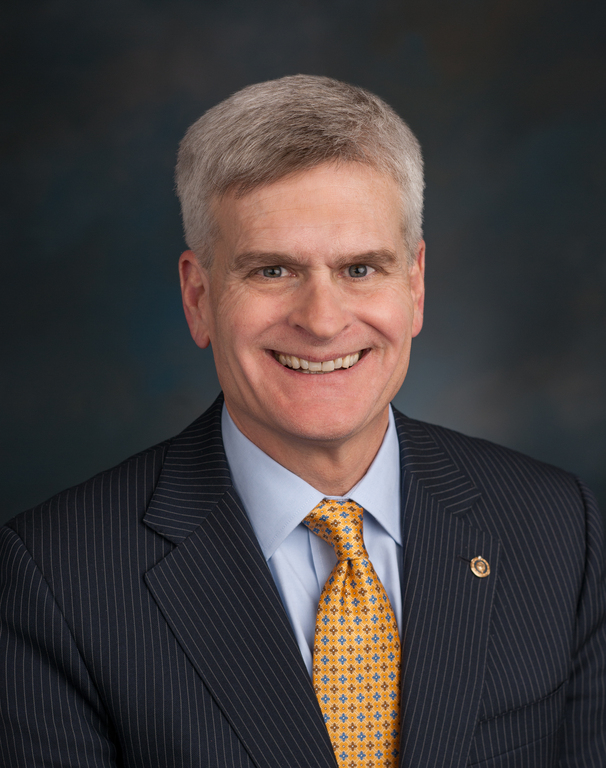How Bill Cassidy built a successful career. Explore key moments that defined the journey.
Bill Cassidy is an American physician and politician currently serving as the senior United States Senator for Louisiana since 2015. As a member of the Republican Party, Cassidy has an extensive political background, including serving in the Louisiana State Senate from 2006 to 2009 and as a U.S. Representative from 2009 to 2015. His career encompasses both the medical field and public service.
1 day ago : Bill Cassidy faces election changes and 340B concerns; Louisiana primary unaffected.
A Louisiana Senate bill change that might have helped Bill Cassidy did not materialize. Concerns arise regarding the 340B program and its impact on patients. Data analysis of recent 340B growth has also been published.
1998: Helped Found the Greater Baton Rouge Community Clinic
In 1998, Bill Cassidy helped found the Greater Baton Rouge Community Clinic to provide uninsured residents of the greater Baton Rouge area with access to free health care.
December 9, 2006: Won Special Election for Louisiana Senate Seat
On December 9, 2006, Bill Cassidy won a special election for the District 16 seat in the Louisiana Senate, defeating William Daniel and S.B. Zaitoon.
December 20, 2006: Sworn into Louisiana State Senate
On December 20, 2006, Bill Cassidy was sworn into the Louisiana State Senate.
2006: Elected to Louisiana State Senate
In 2006, Bill Cassidy was elected to the Louisiana State Senate.
October 20, 2007: Re-elected to Louisiana State Senate
On October 20, 2007, Bill Cassidy was re-elected to a full four-year term in the Louisiana State Senate with 76% of the vote.
November 4, 2008: Elected to U.S. House of Representatives
On November 4, 2008, Bill Cassidy was elected to serve Louisiana's 6th district in the U.S. House of Representatives, defeating incumbent Democratic Congressman Don Cazayoux with 48% of the vote.
2008: Elected to U.S. House of Representatives
In 2008, Bill Cassidy was elected as the U.S. representative for Louisiana's 6th congressional district, defeating Democratic incumbent Don Cazayoux.
May 2009: Introduced Legislation for Earmark Transparency
In May 2009, Bill Cassidy partnered with Jackie Speier to introduce legislation to amend House rules, requiring members of Congress to list earmark requests on their websites.
2009: Elected to U.S. House of Representatives
In 2009, Bill Cassidy was elected to the U.S. House of Representatives.
June 2010: Introduced Gulf Coast Jobs Preservation Act
In June 2010, Bill Cassidy introduced the Gulf Coast Jobs Preservation Act to terminate the moratorium on deep water drilling and require the Secretary of the Interior to ensure the safety of deep water drilling operations.
December 2010: Voted to Extend Bush Tax Cuts
In December 2010, Bill Cassidy voted to extend the tax cuts enacted during the administration of President George W. Bush.
2010: Won Second Term in Midterm Elections
In the 2010 midterm elections, Bill Cassidy easily won a second term, defeating Democrat Merritt E. McDonald with 66% of the vote.
2011: Voted for Balanced Budget Amendment
In 2011, Bill Cassidy voted for the Constitutional Balanced Budget Amendment.
2012: Re-elected Again
In the 2012 election, Bill Cassidy was reelected again, defeating Rufus Holt Craig, Jr., a Libertarian, and Richard Torregano, an Independent, receiving 79% of the vote.
May 2013: Introduced the Energy Consumers Relief Act
In May 2013, Bill Cassidy introduced the Energy Consumers Relief Act of 2013 (H.R. 1582) to require the Environmental Protection Agency (EPA) to submit reports to Congress and the Department of Energy regarding proposed regulations with significant compliance costs.
2013: Addressed Obesity Crisis
In 2013, due to the American Medical Association's decision to officially recognize obesity as a disease, Bill Cassidy helped introduce legislation to lower health care costs and prevent chronic diseases by addressing America's growing obesity crisis. Cassidy said the Treat and Reduce Obesity Act could help empower physicians to use all methods and means to fight the condition.
2013: Closure of Earl K. Long Medical Center
In 2013, the Earl K. Long Medical Center closed. Bill Cassidy worked as a gastroenterologist at the facility until its closure.
September 2014: House Passed Employee Health Care Protection Act
In September 2014, the House passed the Employee Health Care Protection Act of 2013 (H.R. 3522; 113th Congress), sponsored by Bill Cassidy, which enabled Americans to keep health insurance policies that do not meet all of the Affordable Care Act's requirements.
2014: Co-sponsored Amendment to Flood Insurance Act
In 2014, Bill Cassidy co-sponsored an amendment to the Homeowner Flood Insurance Affordability Act in 2014 to limit annual premium increases for flood insurance, reinstate the flood insurance program's grandfathering provision, and eliminate a provision that required an increase to actuarial levels when a home is sold.
2014: Supported Lowering Gasoline Prices Act
In 2014, Bill Cassidy supported the Lowering Gasoline Prices to Fuel an America That Works Act of 2014 (H.R. 4899; 113th Congress), a bill intended to increase domestic energy production and lower gas prices.
2014: Elected to the Senate
In 2014, Bill Cassidy was elected to the Senate, defeating Democratic incumbent Mary Landrieu.
2014: Ran for U.S. Senate
In the 2014 election, Bill Cassidy ran for the U.S. Senate, and he was endorsed by Republican Senator David Vitter.
2015: Became U.S. Senator
In 2015, Bill Cassidy assumed the position of senior United States Senator from Louisiana.
2017: Became Louisiana's Senior Senator
In 2017, Bill Cassidy became Louisiana's senior senator when David Vitter retired from the Senate.
January 2019: Cosponsorship of Constitutional Concealed Carry Reciprocity Act
In January 2019, Bill Cassidy was one of 31 Republican senators to cosponsor the Constitutional Concealed Carry Reciprocity Act, introduced by John Cornyn and Ted Cruz. The bill aimed to allow people with concealed-carry privileges in their home state to exercise this right in any other state with concealed-carry laws.
May 2019: Senate passage of Gold Star Family Tax Relief Act
In May 2019, the Gold Star Family Tax Relief Act, co-sponsored by Bill Cassidy, passed in the Senate. The bill aimed to undo a provision in the Tax Cuts and Jobs Act that raised the tax on the benefit children receive from a parent's Department of Defense survivor benefits plan.
July 2019: Letter regarding FY 2020 continuing resolution
In July 2019, Bill Cassidy was among 16 Republican senators who sent a letter to Acting OMB Director Russell Vought, Acting White House Chief of Staff Mick Mulvaney, and Treasury Secretary Steven Mnuchin, encouraging them to prevent a continuing resolution for FY 2020 that would delay the implementation of the President’s National Defense Strategy.
July 2019: Introduction of Agricultural Trucking Relief Act
In July 2019, Bill Cassidy was one of eight senators who introduced the Agricultural Trucking Relief Act, a bill designed to alter the definition of an agricultural commodity to encompass horticultural and aquacultural products. The Act aimed to promote consistency in regulation by federal and state agencies to ease regulatory burdens on trucking and the agri-community.
July 30, 2019: Release of bipartisan paid parental leave proposal
On July 30, 2019, Bill Cassidy and Senator Kyrsten Sinema released a proposal for paid parental leave. Under the proposal, new parents would be authorized to advance their child tax credit benefits to receive a $5,000 cash benefit upon the birth or adoption of a child, with a reduction in the child tax credit for the following decade.
2020: Concerns over FY 2020 continuing resolution
In 2020, Bill Cassidy expressed concerns regarding a continuing resolution for FY 2020, fearing it would delay the implementation of the President’s National Defense Strategy, increase costs, and render the Defense Department incapable of increasing readiness.
2020: Re-elected to the Senate
In 2020, Bill Cassidy was reelected to the Senate.
2021: Proposal for Social Security investment fund
In 2021, Bill Cassidy and Senator Angus King proposed creating a $1.5 trillion investment fund, managed independently of Congress, to fund 75% of the Social Security trust fund's liabilities.
May 2022: Statements on gun control after Robb Elementary School shooting
In May 2022, following the Robb Elementary School shooting, Bill Cassidy reaffirmed his opposition to banning any kind of guns, including assault rifles like the AR-15. However, he expressed openness to discussions on ways to prevent shootings, such as red-flag laws and expanded background checks and later supported a bipartisan agreement on gun control.
October 2023: Visit to China as part of a bipartisan congressional delegation
In October 2023, Bill Cassidy visited China as part of a bipartisan congressional delegation led by Senate Majority Leader Chuck Schumer. During this visit, the delegation met with Chinese President Xi Jinping and other high-ranking officials.
November 2023: Co-sponsorship of the Foreign Pollution Fee Act
In November 2023, Bill Cassidy and Lindsey Graham co-sponsored the Foreign Pollution Fee Act. The bill proposed a carbon tariff on energy and industrial imports based on the good's emission intensity or carbon footprint, compared with the same domestic good, to impose a carbon price on goods from countries with greater greenhouse gas emissions than the United States.
2023: Vote against Fiscal Responsibility Act
In 2023, Bill Cassidy was among the 31 Senate Republicans who voted against the final passage of the Fiscal Responsibility Act of 2023.
January 2024: Vote against resolution on U.S. aid to Israel's military
In January 2024, Bill Cassidy voted against a resolution proposed by Senator Bernie Sanders to apply the human rights provisions of the Foreign Assistance Act to U.S. aid to Israel's military. The resolution was defeated with a vote of 72 to 11.
January 2025: Confirmation hearings for Robert F. Kennedy Jr.
In January 2025, during the confirmation hearings for Robert F. Kennedy Jr. as Secretary of Health and Human Services, Bill Cassidy questioned Kennedy about his anti-vaccine stance and his refusal to denounce the discredited theory that vaccines cause autism.
2034: Projected Social Security Solvency
By 2034, it is projected that Social Security will run out of money to pay all beneficiaries, an issue that Bill Cassidy has been focused on addressing.
Mentioned in this timeline

Donald John Trump is an American politician media personality and...
The United States of America is a federal republic located...

Bernie Sanders is a prominent American politician currently serving as...

Chuck Schumer is a prominent American politician currently serving as...

George W Bush served as the rd President of the...

The White House located at Pennsylvania Avenue NW in Washington...
Trending

6 minutes ago Bella Ramsey on 'The Last of Us' success and fan reactions to season 2.

6 minutes ago Denzel Clarke's incredible catch against Angels wows MLB, credits mom for athleticism.
6 minutes ago Angels Acquire Wade from Giants Amidst Roster Changes and Trout's Injury News.

6 minutes ago Maggie Rogers Discussed Her New Album 'Don't Forget Me' with John Mayer

7 minutes ago Nicolle Wallace’s political views, Trump's LA protest remarks, and media coverage analyzed.

1 hour ago Xcel Energy's $2 Billion Wildfire Mitigation Plan Approved by Colorado Regulators.
Popular

Greta Thunberg is a Swedish climate activist who gained international...

Thomas Douglas Homan is an American law enforcement officer and...

Playboi Carti born Jordan Terrell Carter is an American rapper...

Cristiano Ronaldo often called CR is a Portuguese professional footballer...

Emma Corrin is an English actor best known for portraying...

Gavin Newsom is an American politician and businessman currently serving...
